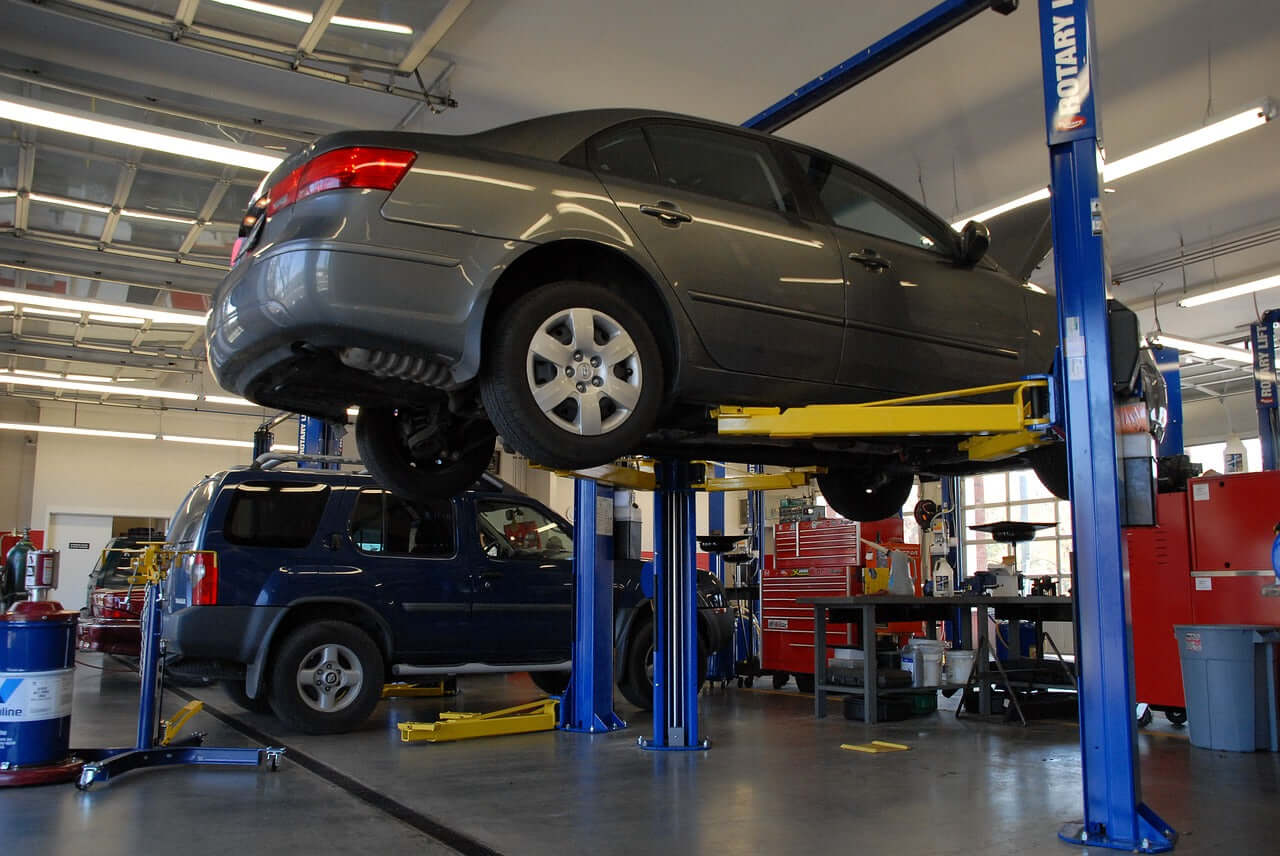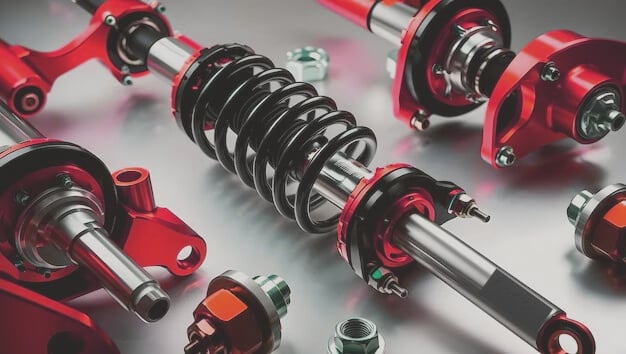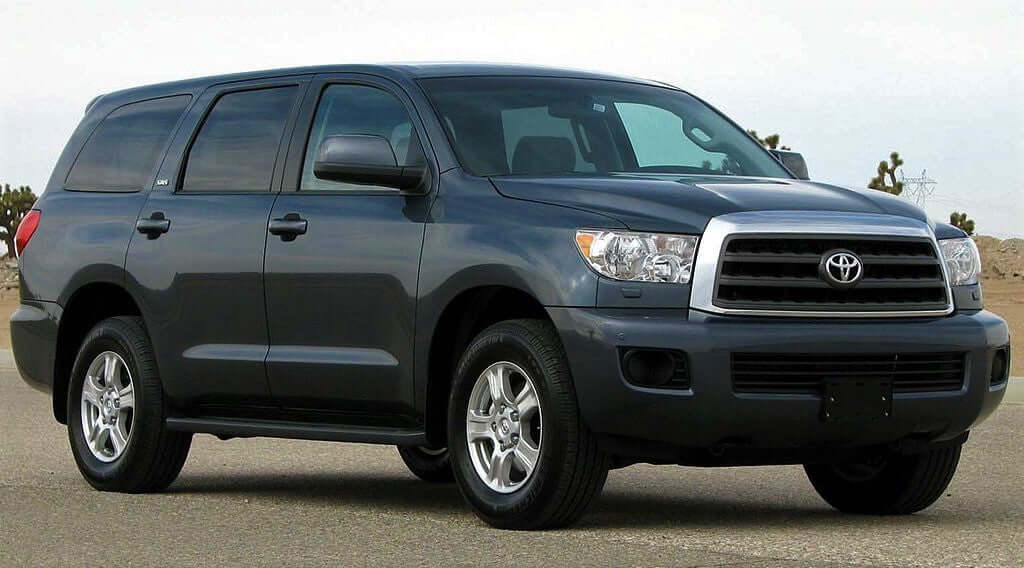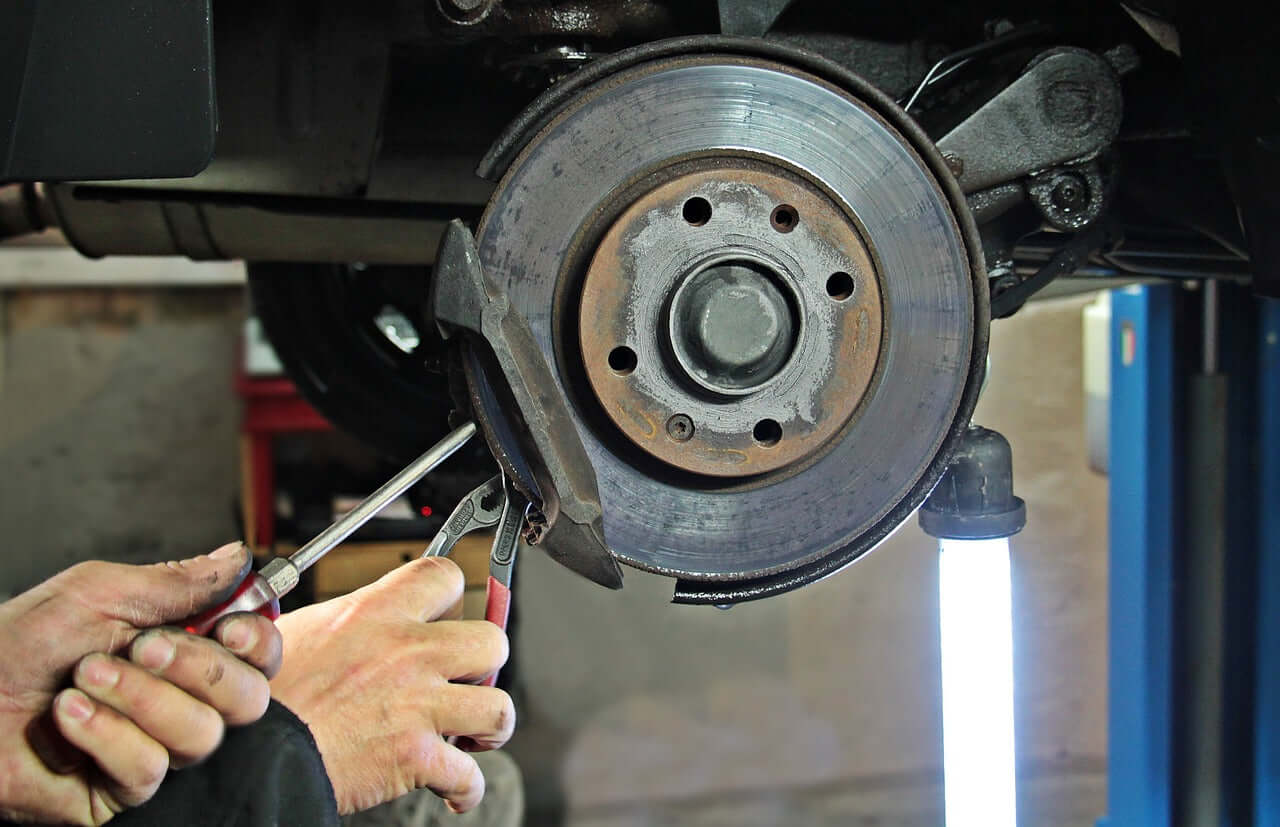With all the marketing information out there meant to influence and sometimes confuse folks, it’s no wonder there are so many air suspension myths and Coilover suspension myths floating around. These myths can make it difficult to get the truth about the advantages and disadvantages of each system and determine which one is right for you.
In this article, we look into the differences between these suspensions and explore some of the most common myths, as well as the truth behind those myths.
What is an Air suspension?
Air suspensions are modern suspension system that uses a combination of computer-controlled components, moving parts, and pressurized air to keep your car at the proper ride height. Originally only on luxury vehicles, air suspensions have made their way into the mainstream, now appearing on vehicles in many categories.
Here’s the gist of how an air suspension works:
1. Ride height sensors located near each wheel continuously monitor how high the car is riding off of the ground.
2. The sensors send this information to a specialized computer called a suspension control module. This computer interprets the information, determines how much air needs to be sent to each air spring, and sends this information to the air compressor.
3. The air compressor generates pressurized air according to the control module’s instructions. It also pumps this air through the air delivery lines into the air springs.
4. Once this air is delivered to the airbags, it inflates them to the specified height. The process repeats over and over again.
What is a Coilover suspension?
A Coilover suspension, on the other hand, is a simple, traditional approach to keeping your car at the proper ride height. Rather than computers and air, a coil suspension uses mechanical resistance from steel springs and struts to keep your car at the proper ride height.
Air suspension myths: debunked
Air suspensions do provide a wonderful ride when they work properly. However, with all the marketing that goes on around them, there are quite a few myths that can give the wrong idea about these suspension systems.
Air Suspension Myth #1: Air suspensions always provide a superior ride.
It’s true that active air suspensions provide a very smooth ride. Since the suspension is able to adjust to keep your car at the proper height, it can give a feeling of gliding over the road. Car manufacturers and air suspension manufacturers alike tout this as a better overall ride.
However, not everyone prefers this ride. That same feeling of gliding over the road can feel “floaty” to some drivers and can impact how the vehicle handles. While some people do like the luxury liner feeling of driving on an air suspension, others prefer a more responsive ride.
Air Suspension Myth #2: Air suspensions are easier on your vehicle
If you listen to the marketing around air suspensions, you might have heard that because they soften the ride, these suspensions produce less wear and tear on your vehicle than a traditional Coilover suspension. But while they may reduce the impact on other components somewhat, there are other issues to consider.
Air suspensions don’t always work as they are supposed to. In fact, most of them fail at some point. And when they do, that can cause lots of additional stress on other components. Driving around for any time at all on a leaky air suspension or one that doesn’t inflate properly can throw off your vehicle’s geometry and do serious damage in a short amount of time.
Coilover suspension myths: debunked
There are also a lot of myths out there about coil suspensions. Since they are less expensive, many people see Coilover suspensions as inferior. But these suspensions have some distinct advantages over air suspensions, and not everything you’ve heard about them is true.
Coilover Suspension Myth #1: Coilover suspensions give a harsh ride
Coilovers may not have the same cloud-like feeling as air suspensions, but that doesn’t mean they provide a harsh driving experience. Or at least, they don’t have to.
Some manufacturers of Coilover suspensions don’t bother to customize their suspensions to the vehicle they’re intended for, instead of taking a “one size fits most” approach. And for sure, this can have some pretty poor results. But when properly tuned and rated, coils can provide a smooth ride that feels just about as comfortable as any air suspension.
Coilover Suspension Myth #2: All Coilover suspensions are basically the same
The technology is old and it’s simple, so all Coilover suspensions are basically equal, right? In truth, there are lots of differences between Coilover suspensions, depending on who makes them.
A reputable suspension manufacturer will use high-quality materials, like cold-wound steel springs and high-strength steel struts. They’ll also take the time and resources needed to properly engineer, tune, and rate the springs to create the perfect ride for each individual vehicle.
Air suspension vs. Coil suspension: The verdict
Whether you should get an air suspension or a coil suspension depends a lot on what your needs and budget are.
If you prefer to have the absolute smoothest possible ride and can afford the extra expense of buying and maintaining that suspension, an air suspension might be the right answer. These active suspension systems offer an extremely comfortable ride, albeit at a premium price tag.
On the other hand, if you prefer a more practical and less expensive approach and don’t have the time or budget to spend lots of time in the shop for repairs, Coilovers are a great choice. While they may not offer quite the same ride as an air suspension, it is comparable. And for some people, it’s preferable.
Can I switch from an air suspension to a Coil suspension?
You can, in fact, convert your car from an air suspension to a coil suspension. Strutmasters makes kits for hundreds of vehicles that allow you to do just that.
For usually about the same cost or less as just one replacement air spring, you can convert your entire suspension to sturdy, reliable Coilovers. Each one of these kits has been meticulously engineered to provide the perfect amount of resistance—and an incredible ride—for each vehicle. You can use the tool below to search for a kit for your vehicle here.
If you’d prefer, you can call us at 866-610-9848 to speak to one of our Suspension Experts. They can answer any remaining questions you might have about anything related to your suspension and help make sure you get exactly the right kit for your vehicle.





